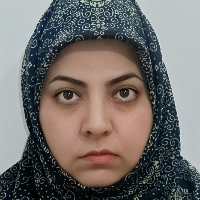The Prediction of Life Satisfaction in Adolescents based on Positive Youth Development and Psychological Capitals
The adolescent's competence in various personal and social dimensions and psychological capital is the basis for life satisfaction. Addressing social and psychological capital at an early stage of life, known as identity formation, can explain life satisfaction in individuals. This study aimed to evaluate positive youth development and psychological capital in predicting life satisfaction in adolescents. The present study was a correlational-descriptive design. The statistical population included all adolescents living in district 5 in Tehran, consisting of three hundred and twenty-five people selected through randomized cluster sampling. To collect data, Geldhof et al.’s Positive Youth Development (PYD) scale, Diener et al.’s Life Satisfaction Scale, and to assess psychological capital Snyder Hope Scale, Schwartz and Jerusalem’s General Self-Efficacy Questionnaire, Optimism subtest of the Life Orientation Test, and the Conner-Davidson Resilience Scale were used. Data were analyzed by using SPSS-24 software. The results of regression using the enter method showed that competence, confidence, caring, and connection played significant roles in predicting life satisfaction and explained 46% of the variance of life satisfaction. Psychological capital, including hope, self-efficacy, and resiliency, also significantly predicted life satisfaction and explained 36% of the variance of life satisfaction. In sum, results indicated the importance of psychological capital, emphasizing the components of positive youth development, including competence, confidence, caring, and connection in adolescent life satisfaction.
-
The Study of Intensive Parenting Attitudes, Parental Goals and Parental Perfectionism in Fathers and Mothers of Iranian Families
*, Shohre Rowshani
Quarterly of Counseling Culture and Psychotherapy, -
Challenges of Emotion Regulation and Its Outcomes in Interpersonal Relationships of Children with Learning Disabilities: A Qualitative Study
*, Narges Sadat Hosseini, Mahnaz Akhavan Tafti
Journal of Learning Disabilities,


